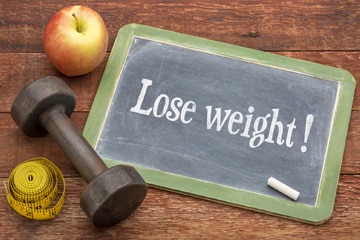Excess body weight can increase the risk of serious health problems, including heart disease, hypertension, and type 2 diabetes. Although several types of “fad” diets are available, maintaining a balanced lifestyle and nutritious diet are key to healthful living and better weight control. In fact, to reduce body weight safely and sustain those results over time, it is important to incorporate lifestyle changes gradually and permanently. Reducing the intake of carbs, eating more protein, lifting weights, and getting more sleep can help in sustainable weight loss. Here discussed are some top tips that help reduce body weight –
- Keep a food and weight diary – Self- monitoring is a crucial factor in weight management. People need to maintain a record of every food item that they consume each day. They can also measure their progress by recording their weight on a weekly basis.
- Eat mindfully – Mindful eating, which involves being fully aware of why, how, when, where, and what they eat – can bring more advantages. Making more healthful food choices can help adjust with the nature of the body. People who practice mindful eating also try to eat more slowly and savor their food, concentrating on the taste.
- Eat regular meals – Eating meals at regular times during the day helps burn calories at a faster rate. It also reduces the temptation to snack on foods high in fat and sugar.
- Never skip breakfast – Never skip breakfast as this will not help reduce body weight. This could lead to people losing out on essential nutrients and ending up snacking more throughout the day because they will feel more hungry.
- Measure servings and control portions – Eating too much of any food, even low-calorie vegetables, can result in weight gain. People need to avoid eating food directly from the packet. It is better to use measuring cups and serving size guides.
- Engage in regular physical activity – Regular exercise is important for both physical and mental health. Increasing the frequency of physical activity in a disciplined manner is crucial for successful weight loss. Try to engage in one hour of moderate-intensity activity per day, such as brisk walking. On the other hand, people who are not usually physically active need to slowly increase the amount of exercise that they do and gradually increase its intensity. In fact, this approach is the most sustainable way to ensure that regular exercise becomes a part of their lifestyle.
- Eliminate liquid calories – Drinking sugar-sweetened soda, tea, juice can add on to calories. In fact, these are known as “empty calories” as they provide extra energy content without offering any nutritional benefits. People should always aim to stick to water or unsweetened tea and coffee. Adding a splash of fresh lemon or orange to water can provide flavor.
- Eat varied and nutritionally dense foods – Healthful meals and snacks should form the foundation of your diet. Create a meal plan that consists of fruit and vegetables, whole grains, fibers and protein. Try to eliminate trans fats from the diet, and minimize the intake of saturated fats. Consume plenty of fruits and vegetables which are low in calories and fat, high in fiber and rich in vitamins and minerals.
Successful weight loss does not require people to follow a specific diet plan. Rather, weight loss is primarily dependent on reducing the total intake of calories and moving more to achieve a positive energy balance.
